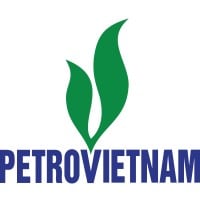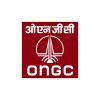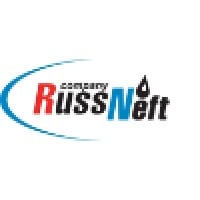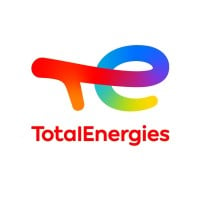Company Cyber Security Posture
NANA
NA Company Details
NA
NA
NA
NA
NA
NA
Scan still pending
NA
NA
Between 200 and 800
This score is AI-generated and less favored by cyber insurers, who prefer the TPRM score.
 NA Global Score
NA Global Score.png)

Company Scoring based on AI Models
| Model Name | Date | Description | Current Score Difference | Score |
|---|---|---|---|---|
| AVERAGE-Industry | 03-12-2025 | This score represents the average cybersecurity rating of companies already scanned within the same industry. It provides a benchmark to compare an individual company's security posture against its industry peers. | N/A | Between 200 and 800 |
Company Cyber Security News & History
| Entity | Type | Severity | Impact | Seen | Url ID | Details | View |
|---|
Company Subsidiaries

NA
Access Data Using Our API

Get company history
.png)
NA Cyber Security News
Kuwait oil sector's impenetrable cybersecurity system keeps perils at bay
Presenting a comprehensive vision about the significance of cybersecurity in Kuwait's oil sector, Ali Al-Qallaf, Kuwait National Petroleum ...
Kuwait Cybersecurity Job Market: Trends and Growth Areas for 2024
Explore the trends and growth areas in Kuwait's cybersecurity job market for 2024, including in-demand roles and opportunities for ...
Guarding Kuwait’s oil heartbeat: The rise of advanced cybersecurity
KUWAIT CITY, June 18: Kuwaiti oil sector companies have successfully established an advanced cybersecurity system designed to protect the ...
Securing Kuwait’s Digital Future: Advancing Cyber Resilience in Line with Vision 2035 – 14th Global Edition, Driving Innovation in Digital Security
The Kuwaiti government has been actively investing in enhancing the nation's cybersecurity infrastructure, including the establishment of the ...
Getting a Job in Tech in Kuwait in 2024: The Complete Guide
Discover how to land a tech job in Kuwait in 2024 with our comprehensive guide. Learn about the skills, demand, and job market in Kuwait.
Kuwait’s Vision 2035 advancing digital identity with global partnerships
Kuwait is struggling with an immense digital transition following its Vision 2035, which strives to diversify the economy and strengthen its ...
KPC awards KD 959K cybersecurity tender
KUWAIT CITY, Sept 29: The Higher Purchasing Committee for Kuwait Petroleum Corporation (KPC) and its subsidiaries announced the awarding of ...
ASSP Kuwait holds 12th International HSSE conference
Held under the patronage of the minister of oil, the event gathered over 500 HSE professionals, experts and delegates to share insights on the ...
Kuwait Cybersecurity Salaries: What Can You Expect to Earn?
Discover what you can earn in cybersecurity roles in Kuwait. A detailed look into Kuwait's cybersecurity salaries, key factors, ...

NA Similar Companies

PETROVIETNAM
Petrovietnam’s business - Core business: + Exploration, Production, Refinery, Petrochemicals, Storage, Transportation and Service in Petroleum Field; + Importing and Exporting petroleum materials, equipment and productions; + Distributing oil and gas products and hydrocarbon materi

Oil and Natural Gas Corporation Ltd
Maharatna ONGC is the largest producer of crude oil and natural gas in India, contributing around 70 per cent of Indian domestic production. The crude oil is the raw material used by downstream companies like IOC, BPCL, HPCL to produce petroleum products like Petrol, Diesel, Kerosene, Naphtha, Cooki

RussNeft
ОАО Oil and Gas Company «RussNeft» came into existence in September 2002 . The structure of OAO NK “RussNeft” counts 24 upstream enterprises, 2 refineries, its own distribution net of gas filling stations. Geographic reach of “RussNeft” covers 12 regions of Russia and CIS: Khanty-Mansi Autonomous

TotalEnergies
Have you ever thought of offering your skills and expertise to a multinational company? Give your best to better energy and make the commitment with TotalEnergies. With over 500-plus professions in 130 countries, we offer high safety and environmental standards, strong ethical values, an innovatio

Gas Natural Fenosa
Gas Natural Fenosa is a leading multi-national in the gas and power sectors. It operates in 23 countries and has more than 20 million customers around the world. Following its recent acquisition of UNIÓN FENOSA, Spain's third biggest power company, Gas Natural Fenosa has achieved its objective of

Cameron, a Schlumberger company
Cameron is a SLB company. For updates and information, please follow the main SLB company page on LinkedIn at: https://www.linkedin.com/company/slbglobal/ Cameron, a SLB company, is a leading provider of flow equipment products, systems and services to worldwide oil, gas and process industries. Lev

Frequently Asked Questions
Explore insights on cybersecurity incidents, risk posture, and Rankiteo's assessments.
NA CyberSecurity History Information
How many cyber incidents has NA faced?
Total Incidents: According to Rankiteo, NA has faced 0 incidents in the past.
What types of cybersecurity incidents have occurred at NA?
Incident Types: The types of cybersecurity incidents that have occurred include .
Additional Questions
What Do We Measure?
















Every week, Rankiteo analyzes billions of signals to give organizations a sharper, faster view of emerging risks. With deeper, more actionable intelligence at their fingertips, security teams can outpace threat actors, respond instantly to Zero-Day attacks, and dramatically shrink their risk exposure window.
These are some of the factors we use to calculate the overall score:
Identify exposed access points, detect misconfigured SSL certificates, and uncover vulnerabilities across the network infrastructure.
Gain visibility into the software components used within an organization to detect vulnerabilities, manage risk, and ensure supply chain security.
Monitor and manage all IT assets and their configurations to ensure accurate, real-time visibility across the company's technology environment.
Leverage real-time insights on active threats, malware campaigns, and emerging vulnerabilities to proactively defend against evolving cyberattacks.




